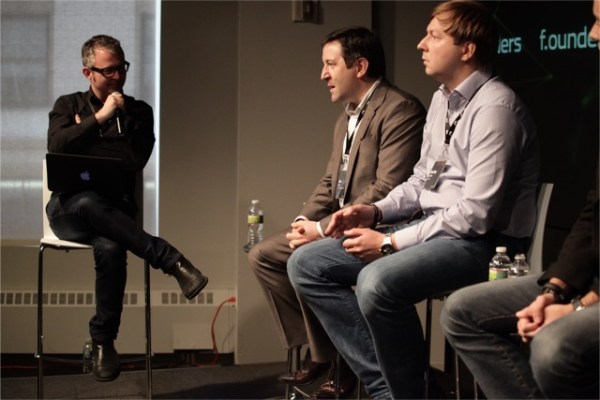There’s nothing like a good conference to create opportunities for new deals, and F.ounders last week in New York was just such an event. Indeed, on the panel I ran about the international tech scene, Dimitry Grishin, the co-founder and chief executive of Russian e-mail and social networking giant Mail.ru, sat next to Liam Casey, CEO of PCH International, a man described as “Mr China” for his ability to make, ship and deliver just about any piece of hardware, including some for a well known tech brand you’re probably using right now.
This was perhaps more than fortuitous. For Grishin had that day announced his plans to invest in a personal robotics fund. Grishin Robotics will have $25 million to play with, searching for personal robotics technology and startups catering to everyday people.
After that panel Grishin and Casey were seen in deep conversation for over an hour. And when I checked in with Casey he admitted they were looking at working together to… build robots.
“Dimitry wants to fund robotic startups. We could potentially build them,” he told me.
And one key to finding out what kinds of robots people would like wandering around their homes whould be crowd-funding.
Casey believes that crowd-funding will come to the big niche of hardware very soon. Indeed, he hinted that he may even build a ‘Kickstarter for hardware’ himself.
Many of us are gradually realising the impact crowd-funding is going to have on tech startups, but also business and culture generally. So far we’ve seen the Gtar at TechCrunch Disrupt take off like a rocket, and that’s not even to mention the the Pebble watch, and less well known projects such as recyclable sneakers or even albums from new bands.
“If Kickstarter is a big box retailer like JC Penney, then there is an opportunity for a boutique,” Casey told me.
“Jack Dorsey made a device, Square. Then every VC that met Jack asked him how he did it. VC’s are re-engaing with hardware. But now the money can be accessed via crowdfunding.”
He admitted 3D printing will accelerate, but that it remains some time away.
A crowd-funding platform for hardware is “the big one” he thinks. He says the platform would “have to act like a VC.” It would need to be curated, picking the right teams to promote.
Casey’s PCH company has already created a hardware accelerator and one of its startups Lark, launched at a recent TC Disrupt.
“If I sit with a Chinese entrepreneur they don’t want to make smartphone apps. They want to make the entire damn smartphone.”
